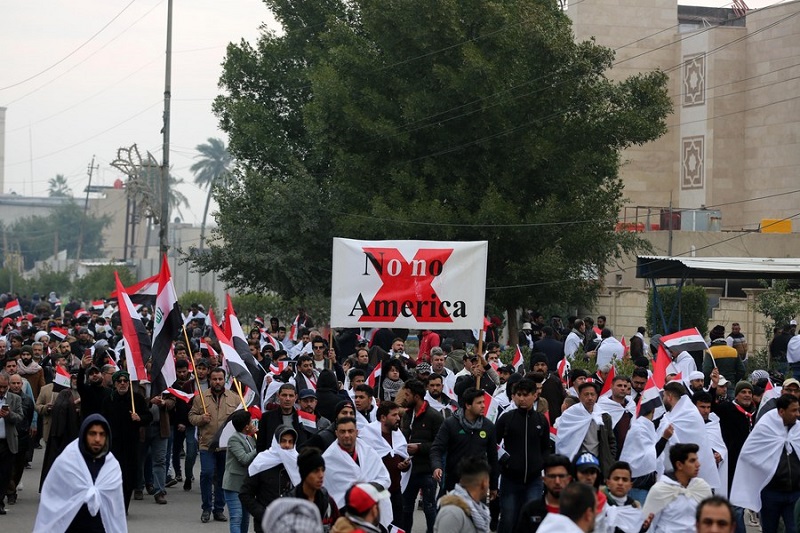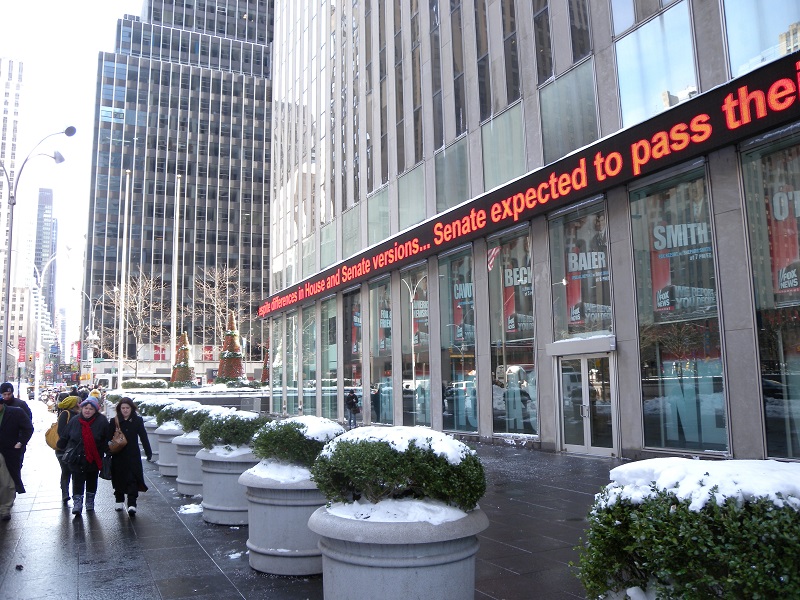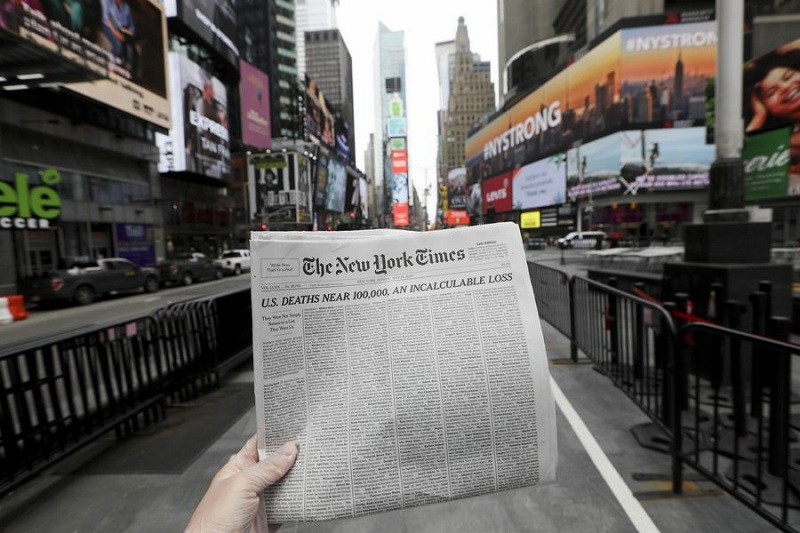We know the US-led Iraq War was based on “a pack of lies” dressed up as intelligence failings, as George Galloway famously noted. Iraq did not possess weapons of mass destruction as the Bush administration and Blair government claimed. There was no connection between Iraq and Al-Qaeda. Nor was there any connection between Iraq and the atrocities committed on 9/11.
At the time many believed such fantasies. Americans were largely convinced that Iraq and Saddam Hussein represented an immediate threat to the nation. This was due in large part to the press which overwhelmingly supported military intervention and repeated, official claims and narratives without question.
Today, a similar campaign is underway with a handful of Western leaders accusing the Communist Party of China (CPC) of almost every imaginable evil. Charges include responsibility for the pandemic, kickstarting a nuclear arms race, and even genocide. As with Iraq, sections of the press are treating officials’ words as gospel.

Iraqi protesters take part in a demonstration against the presence of U.S. troops in the country, in Baghdad, capital of Iraq, Jan. 24, 2020. (Photo/Xinhua)
The media war
In early 2003, the case for military intervention in Iraq was on a legally questionable footing and faced major public opposition. The majority of news media in the US, Australia, and the UK, however, had adopted a pro-war position. Editorial after editorial sought to make the case for war while antiwar voices were silenced.
According to Fairness and Accuracy In Reporting, network news in America disproportionately relied upon pro-war sources. The study found that 64 percent of total sources were in favor of the Iraq War while total anti-war sources made up 10 percent of the media.
The print media was no better. The New York Times admitted there were “a number of instances” where coverage wasn’t as rigorous as it should have been. “In some cases, information that was controversial then, and seems questionable now, was insufficiently qualified or allowed to stand unchallenged.”
The Times further confessed to giving prominence to stories supporting Washington’s narrative and even burying those that didn’t toe the establishment line.
“Articles based on dire claims about Iraq tended to get prominent display, while follow-up articles that called the original ones into question were sometimes buried. In some cases, there was no follow-up at all,” they added.
The Times was not alone in shirking its journalistic duty. The vast majority of the media sought to manufacture consent for war. Rupert Murdoch’s News Corp was noted to have been particularly useful in this regard.
In an address to the Leveson Inquiry, Daily Mail editor Paul Dacre summed up the power of the Murdoch media empire’s support. “I’m not sure that the Blair government – or Tony Blair – would have been able to take the British people to war if it hadn’t been for the implacable support provided by the Murdoch papers,” he said.
Such was the influence of News Corp that Robert Manne labeled Iraq as “Murdoch’s War”. Foreign policy expert Ted Galen Carpenter added “Yes, the press helps start wars.”

Fox News building (Photo/Wikimedia/Jim Henderson)
Echoes of Iraq
At present we appear to be experiencing a case of déjà vu. As in the weeks and months before the invasion of Iraq, journalists are again parroting official narratives and questionable claims. This time the target is China.
Political and military leaders in the US have resolved to present China as “the greatest geopolitical threat” and America’s “number one adversary”. Meanwhile, allied capitals are facing sticks and carrots to promote Washington’s narrative.
In the press, the China-threat theory has reached alarming levels. Earlier this year, The New York Times editorial board accused the Chinese government of “endangering all of humanity”. The op-ed, which placed blame for the coronavirus firmly at China’s feet, read something like a Trump campaign speech. Authors accused the CPC of “obstructing” the WHO and sending out “red-herrings” for reflecting scientific consensus calling for origins-tracing investigations to begin outside of China.
A clear sign the propaganda appears to be working is revealed in polls on public opinion. Pew reported last year that unfavorable opinion towards China (in the 14 advanced economies surveyed) had “soared”. In the US, Australia, Canada, and the UK, negative views had reached their highest point on record.

Photo taken on May 24, 2020, in Times Square, New York, the United States, shows that the front page of a copy of Sunday’s New York Times is being read. (Photo/Xinhua)
Media responsibility
Only a year ago, the notion of a Cold War between the US and China was dismissed as nonsense. Now, it is widely accepted as having already begun. “America is already confronting a new cold war that could well become a hot war,” writes Jacob Helberg in Foreign Policy. “AUKUS has a significant role to play in the new Cold War” reads a headline in the Japan Times.
As the latter demonstrates, nuclear proliferation and the construction of a new military alliance pointed squarely at China has been welcomed, even applauded, by elements of the press. Rather than scrutinizing such developments and calling the warmongers out for what they are, many in the media are behaving as cheerleaders. Some are even pushing for greater escalation.
Given the power and influence wielded by the media, an international forum was held in late October in Nanjing, China. “2021 Media, Think Tank and Youth Dialogue Between Belt and Road Countries” saw the coming together of media and think tank leaders from across Asia, Europe, and America.
The forum was told that as the world undergoes great change, the media must act in a responsible manner so as to not exacerbate tensions.
“Building global peace, harmony and coexistence is the highest challenge of our era,” said Harvey Dzodin, former Vice President of ABC News and senior research fellow at the Center for China and Globalization. Speaking as a former journalist, he warned “we must urgently work to promote peace and prevent war.”